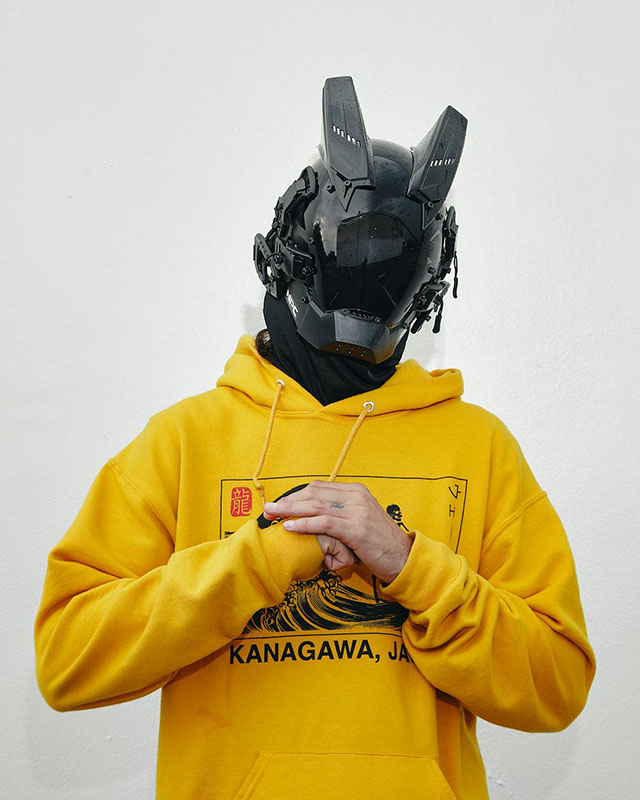
NaNoWriMo has come out with a statement of “If you don’t write the novel yourself, we’re cool with that.” And people have things to say about it.
NaNoWriMo — National Novel Writing Month — is an annual challenge for aspiring and seasoned authors to write a 50,000-word novel in the space of 30 days, beginning November 1. Who? Anyone. About what? Whatever you want. To publish? If you want. Some have. For others, winning (every finisher is a winner) is enough. The organizers offer resources and encouragement, and it’s a pretty good time.
I am, in fact, myself a NaNoWriMo winner. It was some time ago, but I managed to surf in on a wave of Diet Dr. Pepper at 10:05 p.m. on November 30 with the first draft of a 50,079-word novel that didn’t actually suck. (No idea where it is now. Might look sometime.) It was fun. (Probably won’t do it again. Although apparently, it could be made a lot easier this time around.)
So why are board members resigning, a sponsor withdrawing, and writers condemning the organization behind this fun, lighthearted, low-pressure challenge?
Y’all.
How can this possibly be controversial?
Anything can be controversial, if you whiff hard enough. In this case, it was a statement by NaNoWriMo organizers (hereinafter: NaNo) outlining their position on AI, in essence saying… if you’re against it, you’re a bad person. The upshot is that “to categorically condemn AI would be to ignore classist and ableist issues surrounding the use of the technology, and that questions around the use of AI tie to questions around privilege.”
Why? Not all writers have the financial ability to hire humans to help with their writing. Classist. Not all brains have the same facility with language and can discern problems with their writing without help. Ableist. Underrepresented minorities are less likely to get traditional publishing contracts and have to deal with publishing struggles other authors don’t face. Check your privilege, Lord McPrivilege.
All those things are technically true, yet oddly enough, many in the writing community have been vehemently unconvinced. Four members of the NaNo board resigned, and one sponsor pulled out — Ellipsus, a “principled alternative to Google Docs” that has openly and staunchly opposed generative AI.
AI is something I somehow know something about. And having a disability is something I know something about (from a limited perspective). And writing a 50,000-word book in 29 days, 22 hours, and five minutes is something I know something about. And here’s what happens when you squish all that together.
Thoughts from a disabled NaNoWriMo winner who knows some stuff about AI
There’s a long and rapidly growing list of AI-assisted tools to help accommodate the multitudinous challenges people with disabilities often face.
For my part, for instance, writing is, often, pretty much the only way I can express myself reliably and fluently. But I use AI-powered tools to accommodate for the challenges I have. My brain often struggles to turn information I hear into knowledge I can access, so tools that generate meeting transcripts and summaries are huge. When my brain won’t give up a specific word, ChatGPT lets me “What’s a word that means ‘make use of,’ but with a negative implication, like you might be a bad person for doing it?” in a way your standard thesaurus can’t. And those are only two of many such examples accommodating many challenges.
Others who have essentially the opposite problem — challenges expressing themselves through the written word — also have AI tools at their disposal. AI-assisted voice-to-text apps and word-prediction software can help people with dysgraphia organize their thoughts and turn the words in their head into words on the page. Apps like Grammarly can help people with dyslexia avoid grammar traps and those tricky typos that look like actual words and don’t get caught by traditional spell check. And again: many more examples.
Used properly — as a way of assisting the real creative work — AI tools can do a lot to help level the playing field and mitigate challenges non-disabled writers don’t have to deal with.
NO BETA, WE DIE LIKE MEN

But those aren’t the tools NaNo’s critics have been openly critical of, and let’s not kid ourselves that NaNo isn’t aware of that fact. No one is insisting that participants rawdog NaNoWriMo, or that engaging a robot editor to keep their there/their/they’res straight constitutes cheating. The concern is about writers instructing ChatGPT to write them an entire novel based on a one-paragraph prompt and passing that off as original work. And for organizers to pretend they don’t understand that is disingenuous.
And here’s a thing: NaNoWriMo output is kind of supposed to suck. First drafts suck. The goal isn’t a ready-to-query manuscript at the end of the month, it’s 50,000 more or less coherent words that you could, theoretically, eventually massage into a polished book if you felt so inclined. If you don’t have the resources to hire a professional editor or are faced with institutional barriers to a publishing contract, those are things that seriously need to be addressed within the publishing industry. But they have nothing to do with this challenge specifically.
NaNo’s unwillingness to “categorically condemn AI” is their way of skirting the controversy about the use of generative AI specifically in writing. Because vanishingly few people GAF about using Grammarly. It’s about the use of tools like, say, Gemini to generate creative output on behalf of a minimally participating prompter.
And it’s about the fact that generative AI tools are trained from data sets scraped from the entire internet, so that 50,000-word novel churned out by ChatGPT in 15 hours of a 30-day deadline wouldn’t be possible without the unwilling input of authors who weren’t asked, wouldn’t have consented, and weren’t compensated — and, most importantly, did the hard part themselves.
Writers have words.
So far, aside from the non-statement statement added to their original statement, the organizers have generated nothing but cricket sounds. But as you might expect, many authors have plenty to say, a lot of it centered around the use of marginalized communities as a cover for NaNo’s BS rationalization of their unwillingness to speak on technologies that profit from uncompensated contributions.
Many who responded are, themselves, disabled. On Twitter, author Laura Elliott said, “Disabled writers do not need the immoral theft machine to write because we lack the ability to be creative without plagiarism — encouraging AI is a slap in the face to all writers and this excuse is appallingly ableist.” Author C.L. Polk said on Bluesky, “NaNo is basically asserting that disabled people don’t have what it takes to create art when they trot out the lie that scorning AI is ableist.”
Author and resigned NaNo writers board member Daniel José Older wrote in an email to NaNo, “Your heinous re-configuring of language used to fight actual injustices into a shield to cover your transparently business-based posturing is unforgivable.”
Because that’s what it comes down to: NaNoWriMo organizers intentionally dropping a baby into the bathwater as an excuse to not throw the bathwater out. Intentionally (again: not kidding ourselves) sweeping unobjectionable AI tools into the conversation so they could label anyone who objected to the objectionable parts as classist, ableist, and unexaminedly privileged.
So here’s where I overstep about as much as I ever allow myself to do: Writers with disabilities often need AI tools to help us turn our thoughts into words. We don’t need AI to write our stories. We don’t need a robot doing our creativity for us. And trying to use us as a shield — as an excuse to accuse your critics of ableism — for your own gutlessness to speak for yourself is… What’s the word?
Let’s go with exploitation. (Thanks, ChatGPT.)

